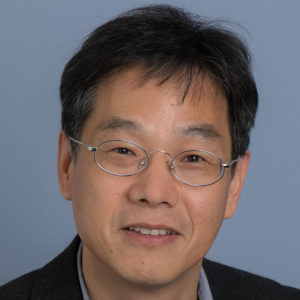T11: Massive Connectivity based on High Performance NOMA-Based Random Access
Organizer: Jinho Choi, Deakin University, Australia
Abstract: Machine-type communication (MTC) becomes a key element for the Internet of Things (IoT) as it enables to support the connectivity of numerous devices within cellular systems such as 5th generation (5G) and beyond to provide a wide coverage. Due to the sparse device activity, uncoordinated transmission schemes (e.g., random access) are considered for most existing MTC schemes in standards. Furthermore, it is expected to have a wide system bandwidth to connect a large number of IoT devices, while the bandwidth is limited. In this tutorial, we discuss how non-orthogonal multiple access (NOMA) can be employed to support the connectivity of numerous sensors and devices with a limited spectrum. We focus on NOMA-based random access schemes for MTC and explain how they can be designed and analyzed. In addition, various approaches are introduced to show how NOMA can be applied to current MTC protocols in standard so that the performance can be improved in terms of throughput and the number of devices to be supported.
 Jinho Choi
Jinho Choi
Bio: Jinho Choi was born in Seoul, Korea. He received B.E. (magna cum laude) degree in electronics engineering in 1989 from Sogang University, Seoul, and M.S.E. and Ph.D. degrees in electrical engineering from Korea Advanced Institute of Science and Technology (KAIST) in 1991 and 1994, respectively. He is with the School of Information Technology, Burwood, Deakin University, Australia, as a Professor. Prior to joining Deakin in 2018, he was with Swansea University, United Kingdom, as a Professor/Chair in Wireless, and Gwangju Institute of Science and Technology (GIST), Korea, as a Professor. His research interests include the Internet of Things (IoT), wireless communications, and statistical signal processing. He authored two books published by Cambridge University Press in 2006 and 2010. Prof. Choi received a number of best paper awards including the 1999 Best Paper Award for Signal Processing from EURASIP. He is on the list of World’s Top 2% Scientists by Stanford University in 2020 and 2021. Currently, he is an Editor of IEEE Wireless Communications Letters and a Division Editor of Journal of Communications and Networks (JCN). He has also served as an Associate Editor or Editor of other journals including IEEE Trans. Communications, IEEE Communications Letters, JCN, IEEE Trans. Vehicular Technology, and ETRI journal.
